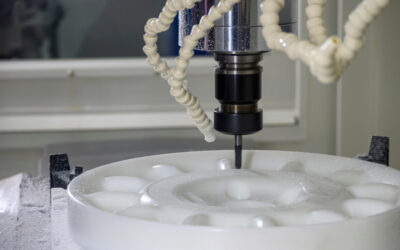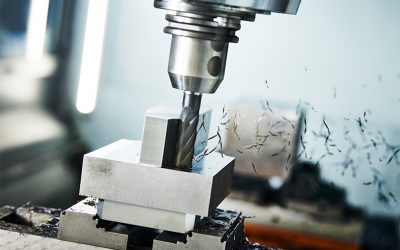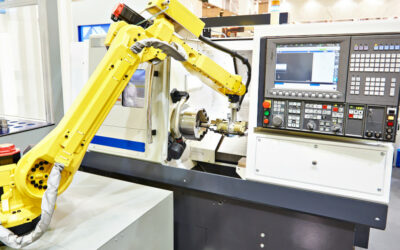In 2018, a massive fire broke out at a manufacturing plant that machines magnesium components in Michigan. And even with the severity of the incident, reports claim that firefighters had to wait for the fire to burn out because water could not extinguish a magnesium-fueled blaze.
Magnesium is a valuable metal in CNC machine shops because of its high strength-to-weight ratio and high level of machinability. But the chips formed from CNC machining magnesium parts are highly flammable. A slight mistake, and you may end up dealing with a fire that is extremely difficult to extinguish.
So how do you address these safety concerns? This article covers the best practices for machining magnesium parts. (Please Note: At Gensun we do not machine with magnesium, but have provided these tips for reference)
Is it Safe to Machine Magnesium?
In order to machine magnesium, very strict safety precautions need to be taken.
No. 1 Maintain Proper Tooling Condition and Avoid Tight Relief Angle
When CNC machining magnesium components, it is essential to keep cutting tools sharp, and relief (or clearance) angles large. This is because dull tools and tight clearance angles cause excessive friction and heat, which can ignite the chips from the CNC machining process.
Carbide-tipped tools retain their hardness and are unlikely to produce sparks when machining at high temperatures. As such, they are better suited for machining magnesium parts compared to steel cutting tools.
No. 2 Make Discontinuous Chips
You must also pay close attention to the type and sizes of chips formed during the machining process. As a rule, it’s better to set up your CNC machines to produce discontinuous (or well-broken) chips instead of fine swarf. This is because discontinuous chips help dissipate the heat from the cutting face and the cutting tools, making it less likely for ignition to occur.
So how do you set up your CNC machine to produce discontinuous chips?
First off, you must ensure that the back rake angle of your cutting tool is small. Moderate to high cutting speeds should also be employed while feed rate should be kept low. Large cutting depths also promote the formation of this type of chip.
No. 3 Use Explosion-proof Vacuum for the Chips
Even after implementing the machining parameters mentioned in #2, the discontinuous magnesium chips produced remain hazardous. Top-tier machine shops now use explosion-proof vacuum systems and extractors to remove magnesium chips and dust from the CNC machines safely.
The extracted chips are then stored separately from other chip materials in tightly sealed non-combustible containers, such as steel drums.
No. 4 Use Mineral Oil Coolants
If your project requires machining parameters different from those mentioned in #2, then it’s highly likely that there will be excessive heat generation during the machining process. For this, you must use mineral oil coolants. They reduce the risk of fire and explosion while improving the surface quality of your machined parts.
Never use water-based coolants since they react with magnesium to produce hydrogen gas, which in itself is highly flammable.
No. 5 Never Use Water to Extinguish Magnesium Fire
So, let’s say something goes wrong in the manufacturing plant, and you’ve got yourself a magnesium-fueled fire to extinguish. Water is definitely not an option because-as we know all too well-it makes things worse.
Dry, Class-D fire extinguishers are more effective for extinguishing magnesium fires. You may also use dry sand, especially if you’re trying to control small fires.
The Risks of CNC Machining Magnesium are Significant
Preventing magnesium-fueled fire hazards requires adhering to the practices we mentioned earlier. The risks posed by this material are significant and you will find that not all machine shops are willing to work with magnesium.
If you are thinking about CNC machining magnesium, we strongly suggest looking at alternative materials that pose fewer risks. At Gensun, we have chosen not to machine with magnesium, due to the possibility of harm and a lack of demand. If you are evaluating your options and come to another alternative, feel free to reach out to us to discuss your non-magnesium part.



